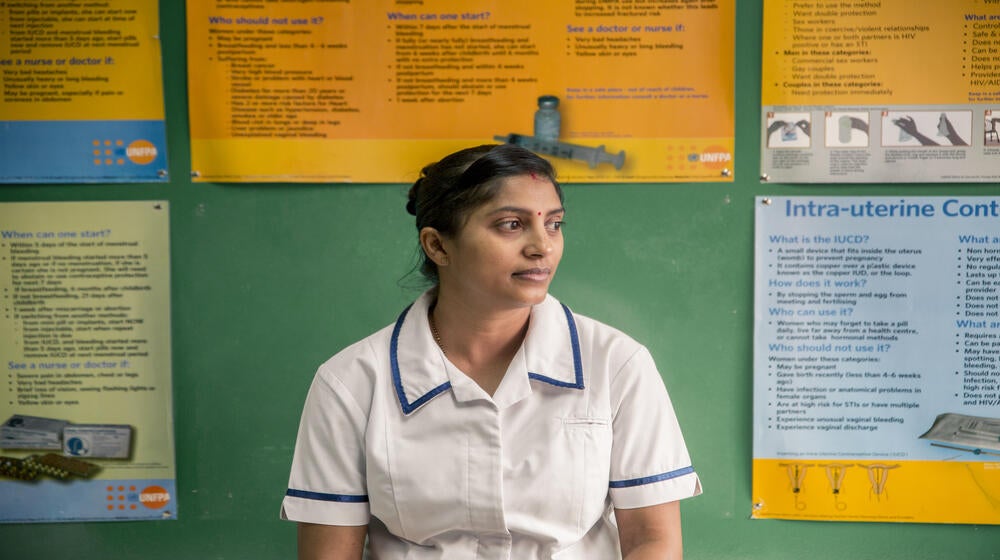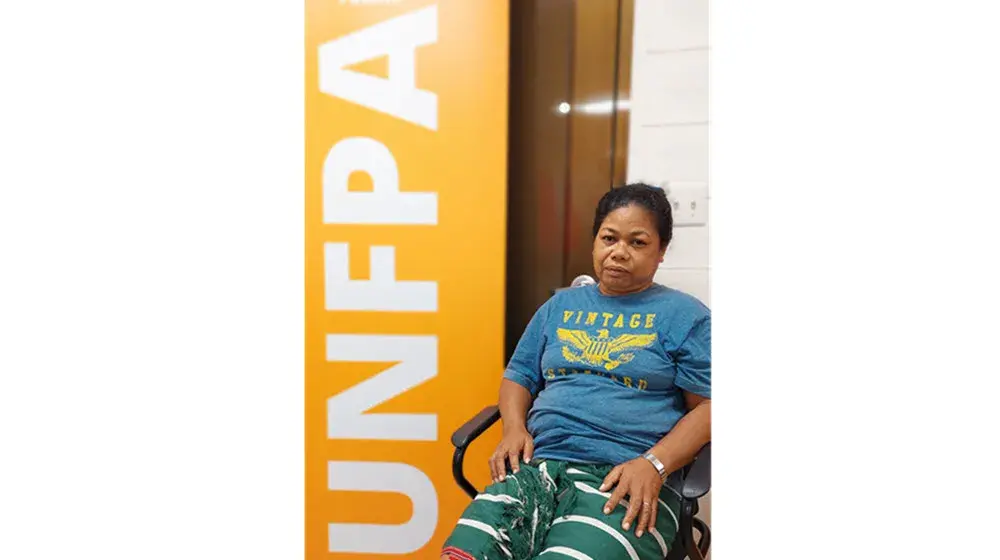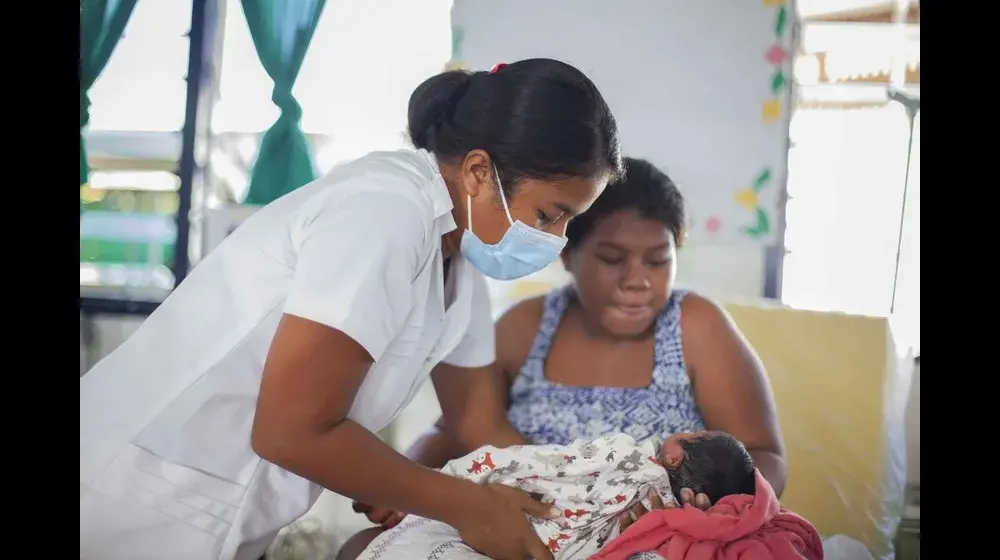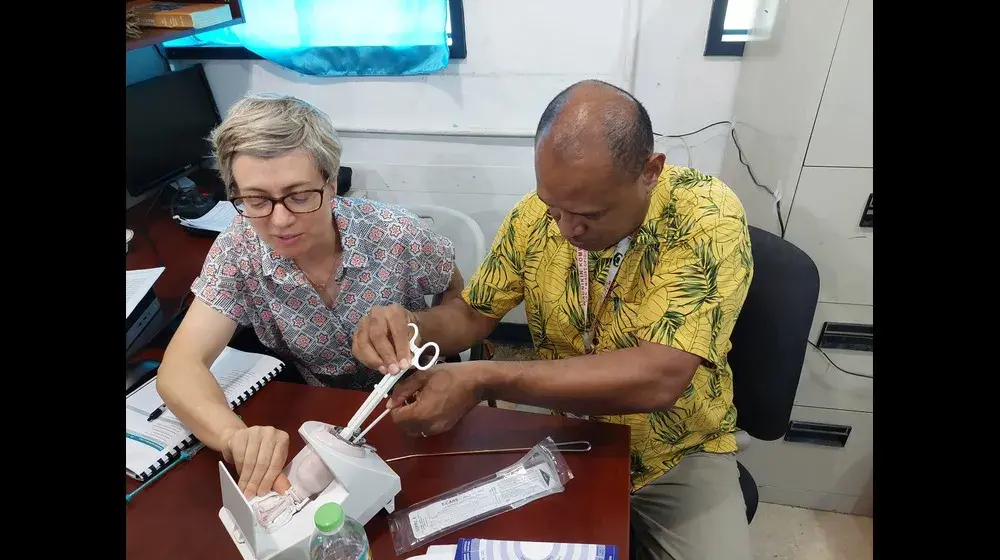Jotika Mala, a family planning nurse in Fiji, believes that myths and misconceptions around family planning prevent many people in rural communities from using contraceptives.
Family planning is the information, means and methods that allow individuals to decide if and when to have children—it is central to gender equality and women’s empowerment, and it is a key factor in reducing poverty. Family planning methods such as contraceptives prevent unintended pregnancies, reduce the number of abortions, and lower the incidence of death and disability related to complications of pregnancy and childbirth.
Health workers such as Jotika play a vital role in providing accurate information on family planning options to women. In many instances, though, they contend with long-held cultural and/or religious resistance to contraception. As a result, women and young people may not seek family planning, increasing the likelihood of unintended pregnancies. Communities therefore need access to accurate information and support on family planning, to be empowered to make informed choices and prevent unintended pregnancies.
This is why it is so important that health workers have the necessary skills to provide accurate, inclusive and up-to-date information and services on family planning. Jotika, for example, looks after 11,708 women of reproductive age from the nearby communities at the maternal and child health clinic. On a monthly basis she and her colleagues go to these villages and settlements to provide integrated health services, including family planning, PAP smear, and breast examination.
“I have noticed that most of the mothers from rural areas still believe myths [about contraception],” Jotika says. “Unless the nurses have knowledge about these myths and how to correct them, I think family planning will never work.”
Ending unmet need for family planning is one of the key targets of the Sustainable Development Goals. To drive progress on this front, UNFPA Pacific partners with the Governments of Fiji, Kiribati, Samoa, Solomon Islands, Tonga and Vanuatu to implement the Transformative Agenda (TA) programme, with funding from the Australian Government. As part of the TA, one health worker per service delivery point in each country is being trained to provide rights-based, client-centred family planning services to everyone, including youth and people with disabilities.
In each country, experienced clinicians are trained as Champion or Master Trainers. The Champion Trainers act as in-country facilitators to train other trainers (Master Trainers) and both—Champion and Master Trainers—will roll out family planning training to health workers nationwide.
Jotika, 36, became a Champion Trainer in December 2020 after participating in a family planning training. She begins training other health workers in 2022. Jotika says that the most important lesson she learnt from the Champion Training related to changing her approach to counselling.
“We were doing it [counselling] the way we had learnt in school, many years ago,” she said. “With the Champion Training, we have better knowledge on how to do counselling, how to approach and build rapport with the mothers, and what questions we need to ask them before starting on family planning. The questions that we asked before did not allow us to get the information correctly. Now we have a sequence of questions that we ask when providing family planning counselling.”
Jotika also credits the Champion Training with other key learning points, such as the correct way of inserting implants (long-acting reversible contraceptives), and the possibility to provide clients with long-acting implants immediately if that is what they wish for, without their first needing a three-month trial of the short-acting contraceptive. This has significant repercussions, because clients often do not return for another visit, or are unable to do so, but with the long-acting implant they are protected for a longer period of time.
Saira Shameem, Deputy Director of UNFPA Pacific, said: “An important way to achieve the Transformative Agenda’s goal of zero unmet need for family planning in the Pacific is by making sure health professionals are able to provide quality family planning services that are centered on the needs and desires of the client and their right to make their own decisions about their bodies regardless of their age, gender or disability. The Champion Training can create a lasting and far-reaching impact in this regard.”
Champion Trainers such as Jotika will be able to put new knowledge and practices to use when training other health care workers. The training will thus help a broad cohort of health care workers to update their family planning skills and to provide youth-friendly, disability-inclusive family planning services.
Learn about the experience of other health workers who took the Family Planning Champion Training.





